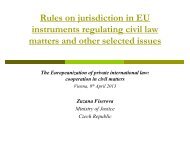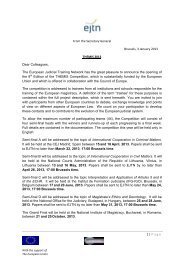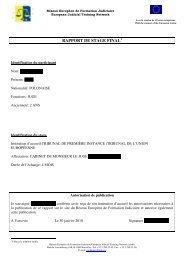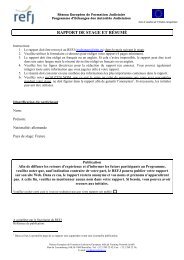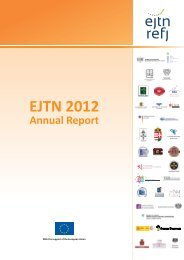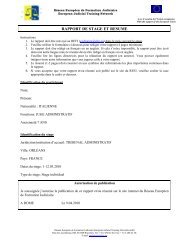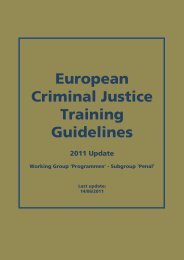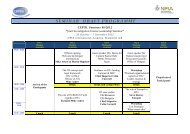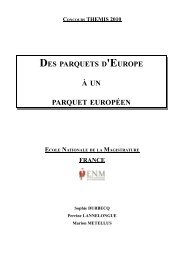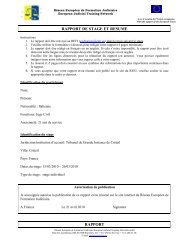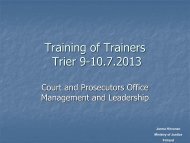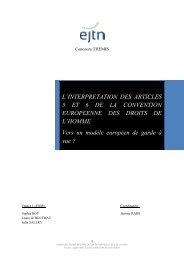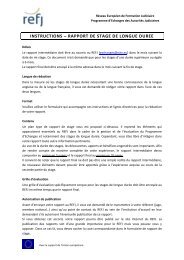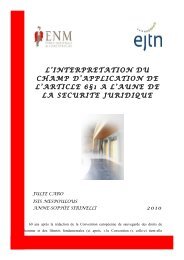Written paper Belgium_1.pdf - European Judicial Training Network
Written paper Belgium_1.pdf - European Judicial Training Network
Written paper Belgium_1.pdf - European Judicial Training Network
Create successful ePaper yourself
Turn your PDF publications into a flip-book with our unique Google optimized e-Paper software.
3. Problem: external secondments to ministerial cabinets<br />
Above internal secondments were mentioned. We believe they are never a problem, as they<br />
take place within the same branch of the judiciary.<br />
Emphasis should be placed here on displacements within the same power. This makes a<br />
fundamental difference with external secondments. External secondments suppose a<br />
displacement from one power to another power. Secondment of magistrates (the judiciary) to<br />
ministerial cabinets (the executive) is an example.<br />
Although these secondments to ministerial cabinets and the analysis of their potential dangers<br />
will be examined further in this contribution, one can notice that this technique is provided by<br />
the legislator himself. Therefore it endures the legality test.<br />
Legislative framework<br />
Article 327,2 of the <strong>Judicial</strong> code defines, in essence, that the Minister of Justice, on similar<br />
recommendation of the General Public Prosecutor, inter alia to magistrates of the Prosecutors<br />
office, can instruct to go into service by the King or the ministerial cabinets. The plural form<br />
of ministerial cabinets seems to indicate that magistrates of the Prosecutors office can form<br />
part of other cabinets than the cabinet of Justice, which is a common practice in <strong>Belgium</strong>.<br />
It is important to emphasize that the legislator only provides in the possibility of secondment<br />
of magistrates from the Prosecutors office to ministerial cabinets and the fact that it isn’t a<br />
possibility for magistrates-judges.<br />
Although posted in a ministerial cabinet (that forms part of the executive), the magistrate<br />
stays both statutory as deontological a “magistrate” and retakes, in principle, his old function<br />
when he returns after the secondment.<br />
In <strong>Belgium</strong> the relations between the judiciary and the executive go traditional through the<br />
Public Prosecutors Office (article 140 of the <strong>Judicial</strong> Code juncto article 399,2 of the <strong>Judicial</strong><br />
code). These legal provisions also point out that the Public Prosecutors Office is placed under<br />
the authority of the Minister of Justice 14 . Nevertheless they are independent magistrates. They<br />
are independent as a magistrate but in the mean time they have to obey the positive right of<br />
14 The Minister of Justice fixes the guidelines of the criminal policy after have taken advise of the board of<br />
General Public Prosecutors (article 143 quater <strong>Judicial</strong> code).<br />
12



